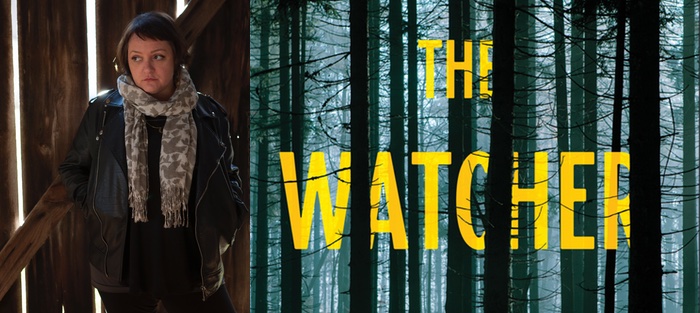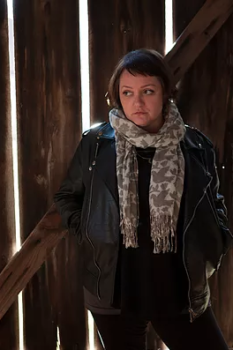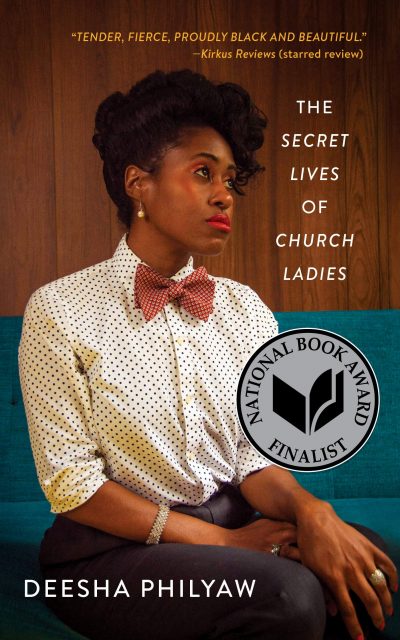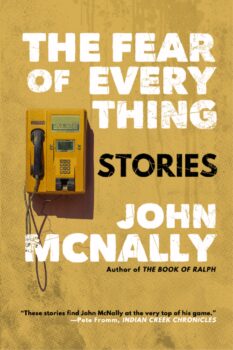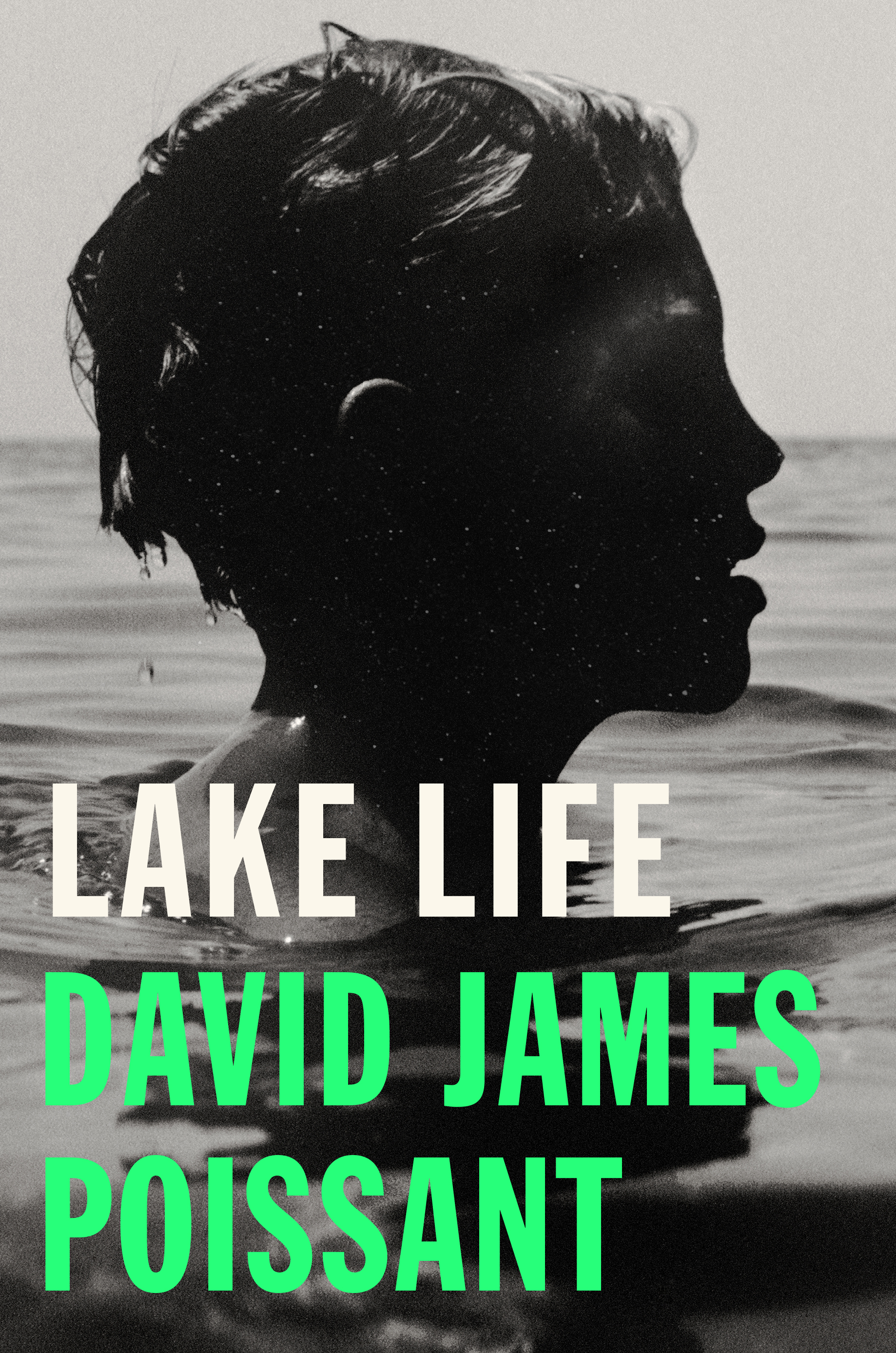Every time Jennifer Pashley writes a book, it’s an act of learning how to do it for the first time. She’s the author of two acclaimed short-story collections, States (Lewis-Clark Press, 2007) and The Conjurer (Standing Stone, 2013), as well as the outstanding debut novel, The Scamp (Tin House Books, 2015), but that doesn’t mean the writing ever gets any easier. Instead, every manuscript requires its own long path of trial, error, and a hell of a lot of research.
Pashley’s second novel, The Watcher, is out now from Crooked Lane Books, and it’s the beginning of a literary suspense series for her. Her protagonist, Detective Kateri Fisher, has had a rough existence and career up until her transfer to the small town of Spring Falls, located in upstate New York, where the class distinctions are as sharp as a scalpel. What seems to be a fresh start for Fisher is interrupted by the bloody murder of a local shut-in and the discovery of a young girl born off the grid. The two revelations are connected to Shannon Jenkins, a local outcast who’s just trying to scrape enough together to get by. In The Watcher, though, no one’s plans go as they might hope.
Pashley and I had the chance to talk on the phone recently, just a couple of weeks after the book’s release. We chatted about literary genres, tits, and Satan, as one does.
Interview:
Barrett Bowlin: After finishing The Scamp, what was it like returning to literary suspense and thrillers?
Jennifer Pashley: Here’s the thing about suspense in general: all good stories have suspense. Any good story has an element of and-then-what to it. Oh, my god, and then what happened? And this is whether or not it’s classified as suspense or a thriller. That’s the driving force of telling a story. So in that way, it feels natural to be in that space of structuring the story, of making it something that needs to be figured out.
Going back to other things that I’ve written, like short stories, they’re all a little bit like that. They don’t fall into the whodunit category but more of a whydunit. Why did this person do this? What the hell is this person thinking? But it’s all still a story about this thing that unravels.
What’s weird is that I wrote a literary novel in between The Scamp and The Watcher that I didn’t do anything with. So I was actually coming back to something else then, and now I’m coming back to literary suspense more than you know. Here, I’ve always been comfortable coming back to writing about marginalized criminal activity. While I had to learn a lot about the police end of it, the human and psychological suspense and the criminal activity parts of it came very natural to me. That’s where I belong.
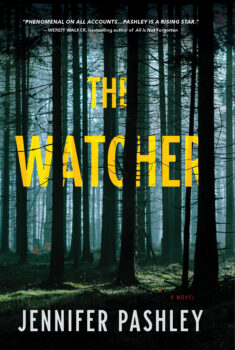 Since The Watcher is listed as the first book in the Kateri Fisher series, do you feel like you’ve found your literary home here? Or at least a camp?
Since The Watcher is listed as the first book in the Kateri Fisher series, do you feel like you’ve found your literary home here? Or at least a camp?
I’m pretty comfortable here now. I know there are still a lot of things I have to learn, though. I spend a lot of my time reading other people’s thrillers—many of them books that aren’t anything like mine—because that’s where I end up getting details about things like forensics or procedurals or the military. While there’s no military presence in The Watcher, there are things that I know nothing about but that I need to have available. I need to be able to see how other authors weave these details into their own stories, and I read a ton of these books.
I like working in a tiny little square of literary suspense, though, because, like so many other genres, the thriller world is its own thing. I’ve been to a few conferences, and it’s shiny and commercial and pretty and pretty heteronormative and upperclass. But now there are a few of us who are working to make this space of writing some shit that’s weird. And it’s kind of cool because I feel like I fit into the parameters of the genre while still being able to do what I do. I don’t feel compromised by the genre.
The Watcher is still a compelling story, but there are things that have now just been twisted a little bit more or been magnified. In a strictly literary world, you might not have the detective detail or the like, but I don’t feel bogged down by them. And this isn’t to be understated: this is a great and wonderful community of people. The other writers I know from this community are amazing. They’re very supportive of each other, and they work to promote other people’s books. It’s been a very nurturing community.
That’s great!
I see this somewhat on the literary side, but everyone in the thriller world is supportive of each other. It doesn’t feel competitive to me, and it’s odd because in some ways we’re all doing the same thing. And that we should be in competition with each other, but we’re not.
It feels like there’s more variation there than there has been previously.
There is.
I was curious, then, what makes upstate New York a good setting for the book (and possibly for the rest of the Kateri Fisher series).
I tend to rely pretty heavily on landscape and atmosphere, and we have no shortage of creepy up here. It’s dark, it’s gloomy. When it gets rural—when you get outside of a bigger town or city—you’re in the middle of nowhere. And it’s old enough to have a sense of haunting come with it. When I was living in Clinton, for example, the house across from us was built in 1800. And there are so many old, worn-down cemeteries around.
But it’s also a place I’m really comfortable writing. When I was writing The Scamp, it took place all over the south, but the non-specific south. Funny story: when they were trying to translate the book into Italian, the translator tried to map it out, and I had to explain that those towns in the book don’t actually exist. But for The Watcher, I’ve tried to give future translators specific names and rough locations with some references to real places. Syracuse is a real place, for example. Utica is a real place. But the town where the book takes place, Spring Falls, isn’t a real town; or rather, it could be any of these little towns on the map. If it has a diner and a gas station and a high school, it could serve as a stand-in.
If it’s got a Stewart’s, you’re good to go.
Exactly! Shoutout to Stewart’s. The only difference between Spring Falls and Mount Snow is that Mount Snow has a hospital and a college. But neither of them is as big as someplace like Utica.
You could almost triangulate Spring Falls by way of you mentioning places like Syracuse and Utica and Clinton.
I envisioned this little town as sitting at the foot of the Adirondacks. This is especially true because of the mention of all the luxury real estate that’s being developed. It fits into the space of where all these people want a luxury home in the mountains, but which doesn’t make sense to all of these other people living in trailers. But that’s also what you see up there. The juxtaposition is very close. There are so many shacks and mansions in the same towns, and the shack probably has a Trump flag outside.
Because of course it does. So what would you say made Kateri the person you’ve landed on as your working protagonist for this series?
I think it’s because she’s a misfit but in a weird way. I wanted to give her her own problems, right? Like her dead teenage mom, the fact that she was living in her grandmother’s house in Syracuse, her young and failed marriage, a drinking problem—you know, that rough upbringing. But she’s not someone who presents as a garbage fire. Instead, she seems to be reserved and put together, and she knows exactly what she’s doing. One of the best descriptions I read of her was in a piece in Crime Reads, and Wendy Walker referred to her as “emotionally complex,” which I love. I mean, she is. She’s got a lot of different fronts. She’s a person of contradictions, and she’s also someone who is lonely but who is seeking connection but also wants to be left the fuck alone. It’s this push and pull with her that I find interesting, and I think it’s hilarious that her partner, Hurt, has trouble figuring this out.
There’s that great scene where Hurt doesn’t know where to look: at her face or her tits. It’s so uncomfortable.
I mean, it’s hard not to look at the tits, right? Because Kateri’s a little, low-key hot. Let’s face it.
Kind of along those lines, I was curious as to why it’s Shannon who gets the first-person POV treatment here and not Kateri. Since this is the first book of the series, what was behind this decision?
I felt more connected writing in his voice, and I felt like what I was doing with Kateri, building this broader narrative, was just something that was handled better in third-person. It felt just enough removed from things. I was narrating Kateri’s story while Shannon was telling his story. And that character came to me with a specific voice. There’s a particular sound to him, a timbre.
But the same is true for the second book: it’s the other person, not Kateri, who gets the first-person perspective.
I like it. It forces the reader to do a bit more digging to get into Kateri’s head.
Right. It also helps because Kateri’s storyline and point of view are very linear. It’s point A to point B. Meanwhile, using first-person POV in Shannon’s chapters allows me to move around a lot more. I can do flashbacks, I can do them out of order, I can mess around with that particular storytelling since it allows that character to be more unreliable in a way that Kateri is not. She’s far more reliable. She’s complex, but she’s damn reliable.
That’s the stability of the book, I think. Other characters beside Kateri are suspects through a good portion of the book, and you keep wondering how much of this crime they’ve actually done. It forces us to question what these other characters are saying, and, for Shannon, it’s not hidden behind this scrim of a third-person POV.
That’s one of the things I got to play around with in The Scamp. I had two first-person narrators, but they’re both unreliable. I’ve found that it’s always in my mind to have the antagonist (or the villain, the worst person, or what have you) be portrayed with sympathy in the story. I want you to like them. And then I want them to kill somebody.
For me, it all boils down to Milton’s Satan.
Those damnable sexy, sexy antagonists.
Exactly.
As Kateri’s a detective, it was essential to have the details on police stations, the morgue, and even the courthouse down. How did you research those elements for the book?
Some of that is circumstantial. A lot of this comes from growing up in small towns, where the police station and city hall and the morgue are all in one building, and it’s also where you buy your stamps. There’s that kind of small-town efficiency present. So some of it is just from having seen it, and some of it was from on-the-fly research. I’ll be in the middle of a scene, you know, and have to look up blood-spatter patterns. I get the information I need, and then I’ll usually just leave it in there until someone questions me on it. I’ll research enough to make myself comfortable with the details, and then I’ll revisit it during revision to see if it’s enough. And if an editor comes back and questions me about the details and asks, “Is this right?” Then I’ll go further and do more research as needed.
I know that there are readers who will cling to those details, but I’m more interested in the emotional accuracy and the psychological impact and the characters’ reactions. If those things aren’t accurate, I don’t care about the blood spatter. So I try not to bog myself down with that, and I’ve resigned myself to the fact that no one can ever look at my Google search history.
Oh, no doubt. You will be implicated for murder, and the feds will definitely try to find a body. At least one, I’m guessing.
My backyard will be nothing but a grid of police tape and lots of digging.
There are so many rich and dark elements from the noir and mystery genres here. Can you talk a little bit about working through the complexities of the whodunit mechanics in the book?
This probably won’t count for anything, but I was originally comfortable with the whos and whys being more ambiguous than they are. So some of the neatness—and I’m not saying it’s neat by any means—that happens at the end, for example, came from what happened in the editing process. See, I’m fine with not knowing what will ultimately happen in the book. The idea of a twist might be there or a reveal, and that would be enough for me, but my editors pushed me toward having to know more about why and when certain characters were in certain places. I needed to get more specific and in a way that I normally wouldn’t be, and I think that’s the byproduct of this being a commercial genre.
It’s important here to have things more nicely tied up at the end.
Yeah, so that’s how I got to that point. But getting to figure out who had done what and why became an exercise in really figuring out my characters’ motivations and personalities. I had to figure out my characters’ crimes and what made them different from each other. One character’s crimes might be visceral and immediate while another’s might be long and drawn-out and much, much meaner.
So much of what drives the characters in the book is related to money—the lack of access to it, what they’ll do for it in order to survive, for example—and to poverty, and I wanted to find out more about your own relationship with money growing up.
I had none. So the poverty details weren’t something that I had to research, right down to the fact that my own mother’s house was up for auction for failure to pay back taxes. So a lot of that was firsthand knowledge—if you don’t pay your back taxes, for example, here’s how long they’ll wait before they put a sign up in your yard. And then how do you get out of that, what are the workarounds, etc. Do you sell the thing, or can you put it in someone else’s name? Can you go on a payment plan? If someone comes to you and says you owe $50,000 in taxes, what can you possibly do? So between that and having the power shut off, poverty feels like everything is working against you and everything has been made harder, with the added expectation that most people will fall through the system.
See, most of the people who will have to go apply for public assistance or food stamps or whatever will be deterred by the layers of bureaucracy, and it is absolutely a system built to deter you. And not everyone will get to the end. Not everyone will get the benefits they need because it’s too fucking hard. Or it’s something that takes all day. It’s a system that forces you to spend all day in a building to wait for your number to be called while you’re waiting there holding your infant. Nothing about it is easy.
So that’s my personal experience with it, and I wanted to make sure that it was clear and that the characters in that system are sympathetic, and that it’s all juxtaposed against characters who have money. Where those two worlds clash up against each other? The extreme class difference? Now that’s a good place for shit to happen. Me writing about those kinds of issues—poverty, mental illness, addiction, or violence—that’s organic for me. It’s the details about Mercedes and Land Rovers that I have to look up.
You write in the genres so damn well, so I’m curious, then, as to which authors have influenced your way into crime fiction and thrillers.
I find I end up structuring the manuscript the way I want to at first, but one of my better strengths is the fact that I’m a really good student. I wind up making myself reading lists, and I can curate a bunch of texts that I know I need to study. And then I can plow through those books and then come out the other side feeling like I have a new stockpile of information. Now I can make my own thing.
I read a lot of Karen Slaughter, for example. I love her because she captures small-town details and small-town politics dead-on, and it’s all southern and has a certain feel to it. When that woman goes dark, she goes dark, you know? Bodies-on-meathooks dark. So what I took away from her books is stuff about police work and murder investigations and third-person characters, but I also learned that it’s okay to get really, really violent. Reading Slaughter gave me this sense of permission.
I also read a lot of Ruth Ware. Her books aren’t so procedural but they’re very language-based, so it’s all on a different palette for me. And then Harlan Coben, of course, who also has a lot of Netflix specials. What’s fascinating about reading and watching his work is all the mechanics of how he decides to put something together. When I watch those shows, I’m working. I’m trying to figure out this person and this other person and when a clue is coming. I feel like I can experience his work and watch how he puts together the puzzle. And that’s incredibly informative to me. We’re not at all alike and we’re not writing the same type of stuff—he’s a very suburban, upper-class, New-Jersey writer and I’m not—but the structure of how he lets you know what’s happening and the structure of the reveal is really interesting to me.
But nonfiction has also been extremely helpful. I know I read her book after finishing up edits on The Watcher, but I was just so impressed by Tara Westover’s Educated, which is more fucked-up than anything I’ve ever written and is absolutely true. I talked to other people about reading that book, and a friend, Jane, told me that she would have to read the book in spurts, put it down frequently, and then not look at it for a week. She told me how her heart would race and how she would just have to walk away sometimes from it.
I feel like I’m always in a state of curation. It’s funny to me now, but when I left grad school, I thought that I would now finally be able to read for pleasure. But while the reading I do now is pleasurable, it’s always curated.
You’re always at work, always pulling something from it. You can never be “just a reader” again.
Nope!
Also, I wanted to go back to that question on literary influences. You know who taught me how to do a reveal in a crime story? Toni Morrison’s Paradise.
Oh, absolutely.
Beginning a book with “[T]hey shoot the white girl first”? And then not knowing what that’s even about? That’s my highest goal for anything: to be able to write something that unravels like that book unravels.
The perfection in that book!
And books like Lolita and The Secret History work that way, too. You know the thing that happened, and then you have to backtrack in a weird circle to get to that starting point again and then move past it. I’m hoping that it’s sort of what happens in The Watcher, also. You know the thing that happens, and then the story has to backtrack to get you up to speed, and only then can the two points of view come together in the same tense. These are my structural signposts.

